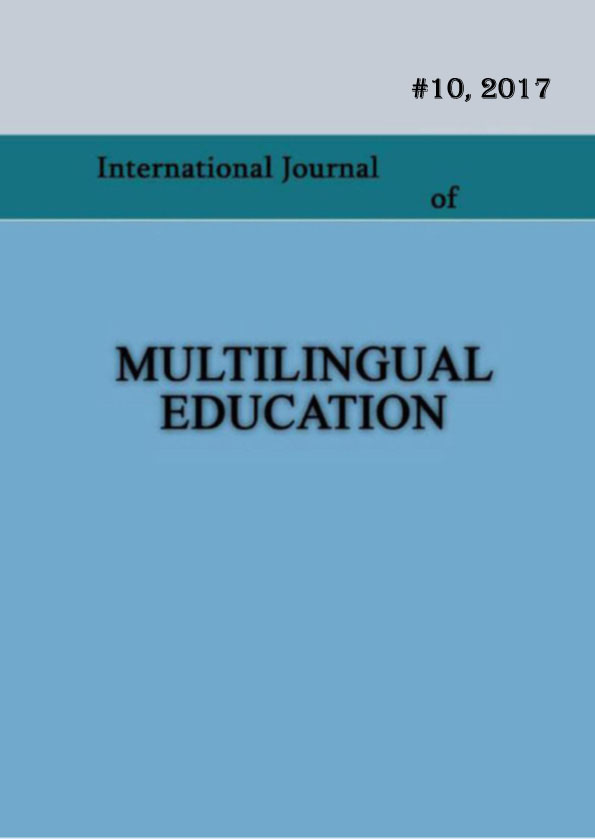Why do I Consider Teaching to Be an Art?
Keywords:
motivation, communicative language teaching, presentation, accuracy, fluency.Abstract
In a teaching/learning environment, it is important to assist a learner to develop self-confidence, enjoy his/her own progress and succeed in the field. Effective teaching should be process- and not result-oriented, for this, teaching strategies are essential. All teachers need to remember an inspirational quote by Albert Einstein: “I never teach my pupils, I only attempt to provide the conditions in which they can learn.” That will make a teacher a motivational energizer for his/her students inspiring them wanting to learn and hoping to succeed. That requires a tremendous effort from a teacher. In a well-planned lesson every student has to produce the language independently without any preparation, which is a good practice for them and which enables them to become a motivated, self-confident learners and succeed easily. Here are some examples of my favourite activities that can make a lesson fun and encourage students speak out loud.
One of my favourite tasks is PowerPoint presentation. This so called performance task asks students to perform to demonstrate their knowledge, understanding and proficiency. At the end of a topic that we cover during the lessons I ask my students to prepare a PowerPoint presentation on a related topic. That gives them the chance to produce their own language. Consequently, if you tell your students that they do not have to worry about their mistakes (this is a controversial question, though) that will boost their self-confidence and lead to success.
Another motivating activity I use with my students is Questioning/Interview.
The questions could be about anything but the only condition is that an interviewee could not say just yes or no. S/he needs to speak expand the answer and describe the situation or express his or her feelings. For example: 1. Do you remember the first day you met your best friend?
- What three adjectives can you use to describe yourself? or something like that.
To make the activity a bit more difficult, you could ask the students work in pairs, think of a situation and ask his/her partner give argumentative response to the situation. For example: Your brother is a school-leaver and wants to go to University. He cannot decide whether to enter the University in your hometown or go to another city. Where would you advise him to go and why? Use arguments in your response. At the initial stage, you can bring ready- made situations for them but afterwards they will manage to think of the situations themselves. There is one more recommendation I’d like to share with you. Remember, almost all activity could be turned into a communicative, motivational one. To make the case more challenging, I can say that there is no ready-made recipe with special ingredients that will make you a good teacher to help students become successful learners. That is why I consider teaching to be an art. Why do I think that a teacher must be a good actor/actress? To answer the question, I will share what I have learned during 25 years of teaching.
References
Alavidze, M. 2017. Teaching and Assessing Spoken English. Saarbrucken, Germany, LAP LAMBERT Academic Publishing.
Chambers, F. 1997. What do we mean by fluency? Southampton, S017 1BF, UK University of Southampton, School of Modern languages, Faculty of arts, Avenue Campus.
Douglas, D. (1997) Testing Speaking Ability in Academic Context- Monograph Series
Fillmore, C. J., Kempler, D., & Wang, W. S. (Eds.) 2014. Individual differences in language ability and language behavior. Academic Press
Harvey, P. 1985. A lesson to be learned: Chinese approach to language class. ELT Journal, 39, 3, pp.
183–186
Hartmann, R.R.K.&Stork, F.C.1976. Dictionary of Language and Linguistics. New York: Wiley Huitt, W. 2011. Motivation to learn: An overview. Educational Psychology Interactive. Valdosta, GA:
Valdosta State University
Roberts, J. L. 1982. Recent developments in ELT. In Surveys 1 and 2 ed.V. Kinsella. Cambridge: Cambridge University Press.
Zhenhui, R. 1999 Modern vs Traditional. Forum, vol 37 No 3, July-September pg 27. dosfan.lib.uic.edu/usia/E-USIA/forum/vols/vol37/no3/p27.htm
Downloads
Published
How to Cite
Issue
Section
License
Copyright (c) 2017 Maia Alavidze

This work is licensed under a Creative Commons Attribution-NonCommercial 4.0 International License.
Copyright (c) - Authors who publish with this journal agree to the following terms: Authors retain copyright and grant the journal the right of first publication with the work simultaneously licensed under a Creative Commons Attribution-Noncommercial 4.0 International License, which allows others to share the work with an acknowledgement of the work's authorship and initial publication in this journal. Authors are permitted and encouraged to post their work online (e.g., in institutional repositories or on their personal website) prior to and during the submission process, as it can lead to productive exchanges, as well as earlier and greater citation of published work (see The Effect of Open Access). Authors may enter into separate, additional contractual arrangements for the non-exclusive distribution of the journal's published version of the work (e.g., post it to a repository or publish it in a book), with an acknowledgement of its initial publication in this journal.

